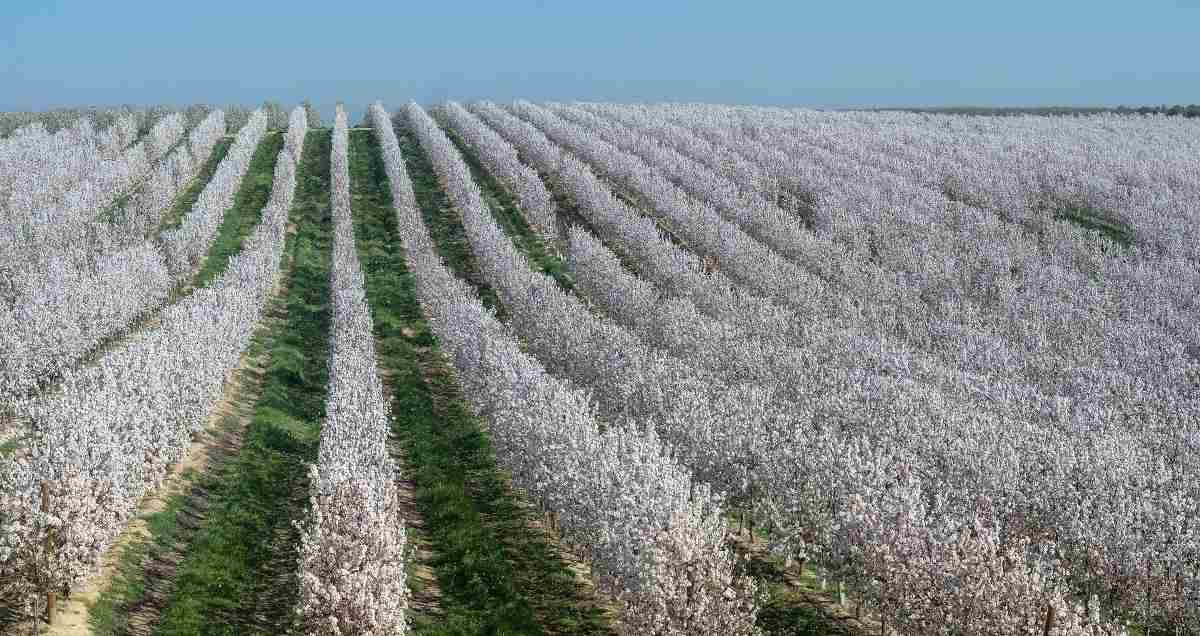
Organic almond farming is becoming increasingly popular as more consumers demand sustainable, eco-friendly products.
With concerns over pesticide use and environmental impact, organic farming offers a solution that prioritizes the health of the land, the crops, and the people who consume them.
By embracing organic farming techniques, almond growers can produce high-quality almonds while also contributing to the health of the environment.
This article explores the benefits of organic almond farming, the methods used in this practice, and the importance of sustainable farming for the future of almond production.
1. The Benefits Of Organic Almond Farming
Organic almond farming offers numerous benefits, both for the environment and for the consumer. One of the main advantages is the elimination of synthetic pesticides and fertilizers, which can have harmful effects on the soil, water, and surrounding ecosystems.
Organic farming practices promote soil health by using natural methods such as composting, crop rotation, and cover cropping. These techniques help maintain soil fertility without relying on chemical inputs.
Additionally, organic almonds are free from harmful residues, making them a healthier choice for consumers. By choosing organic almonds, buyers support farming practices that protect biodiversity and contribute to a more sustainable food system.
2. Soil Health And Sustainable Practices
In organic almond farming, soil health is a top priority. Organic farmers use a variety of methods to maintain and improve the quality of their soil. These practices include crop rotation, which helps prevent the depletion of soil nutrients, and the use of organic compost to enrich the soil with essential nutrients.
By avoiding chemical fertilizers, organic farming encourages the growth of beneficial microbes and insects, which contribute to a healthy and thriving ecosystem.
The use of organic mulch and cover crops also prevents soil erosion and helps retain moisture, reducing the need for artificial irrigation. These sustainable practices ensure that the land remains fertile and productive for years to come.
3. Pest And Weed Management In Organic Almond Farming
Pest and weed control are significant challenges in almond farming, but organic almond growers address these issues without the use of synthetic pesticides and herbicides. To manage pests, organic farmers often use natural predators, such as ladybugs and predatory insects, to control harmful pests.
Additionally, organic farming encourages the use of traps and barriers to prevent pests from damaging crops. For weed control, organic almond farmers employ methods such as manual weeding, mulching, and the use of cover crops to compete with weeds for nutrients and sunlight.
These natural pest and weed management strategies help maintain a balanced and healthy farming ecosystem while avoiding harmful chemicals.
4. Certification And Standards For Organic Almond Farming
For almonds to be considered organic, they must meet strict certification standards set by regulatory bodies such as the USDA (United States Department of Agriculture) or other national organic certifiers.
These standards ensure that the farming practices used are in line with organic principles, including the prohibition of synthetic chemicals, GMOs, and the promotion of biodiversity and ecological balance.
To become certified organic, almond farms must undergo rigorous inspections and meet specific requirements for soil management, pest control, and crop rotation. Certification helps consumers trust that the almonds they purchase are genuinely organic and grown in an environmentally responsible manner.
5. Market Demand And The Future Of Organic Almond Farming
As consumers become more aware of the benefits of organic food, the demand for organic almonds has risen steadily in recent years. Organic almonds are highly sought after for their perceived health benefits and their environmentally friendly production methods.
This growing market has encouraged more farmers to transition to organic farming practices. While organic almond farming can be more labor-intensive and require careful management, it offers long-term financial rewards through premium prices for organic products.
The future of organic almond farming looks promising, with increasing support from both consumers and regulatory bodies. As the industry continues to grow, it is essential for farmers to adopt sustainable practices and ensure that the transition to organic farming is both economically viable and environmentally beneficial.
In conclusion, organic almond farming offers a sustainable and eco-friendly approach to almond production. By focusing on soil health, natural pest control, and sustainable farming practices, organic almond growers can produce high-quality almonds while protecting the environment.
The demand for organic almonds is rising, and this trend is likely to continue as consumers seek healthier, more sustainable food options.
With certification standards ensuring that organic practices are upheld, both farmers and consumers can trust that organic almonds are grown with care for the land and future generations. Organic almond farming is an important step towards a more sustainable and healthy agricultural system.
Read Also: How to Process, Package, and Export Almonds





